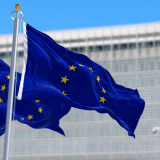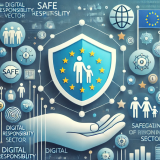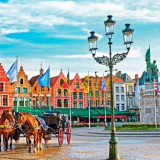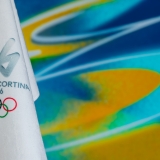100 days of the Von der Leyen Commission
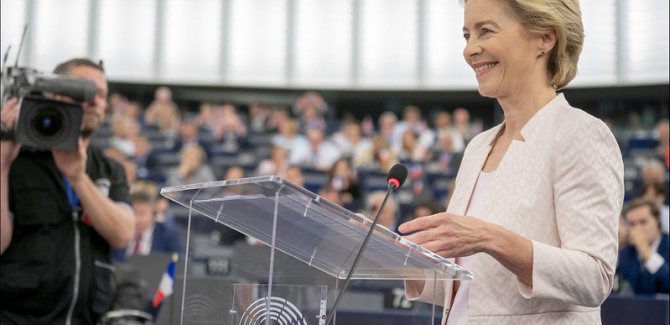
March 2020 marked 100 days since the current College of the European Commission took office. Commission President Ursula von der Leyen looked back at the achievements, but also ahead at the expected next steps in line with the agenda outlined in her Political Guidelines back in July last year. This agenda was in the meantime hit hard the last weeks by the rapid spread of COVID-19 around the globe, which is now high on the Commission’s agenda. The European Parliament recently approved the first EU wide measures proposed by the Commission to help people and businesses deal with the impact of COVID-19 and mitigate its effects. The European Parliament recently approved the first EU wide measures proposed by the Commission to help people and businesses deal with the impact of COVID-19 and mitigate its effects.
Since the new European Commission took office on 1 December 2019, the EL team has continued to monitor relevant policy developments and key initiatives– legislative or non-legislative alike – which might have an impact on the gambling sector, addressing them as necessary and working closely with the EL Public Affairs working group. In the first 100 days, the focus of the new Commission was on delivering the most important priorities set out in its President’s von der Leyen Political Guidelines: (1) shaping Europe’s digital future; (2) Europe becoming the world’s first climate-neutral continent by 2050; and (3) making Europe a stronger player in the world.
Shaping Europe’s digital future
In February, the Commission presented the European Data Strategy. The Strategy is said to help Europe’s industry to “lead the twin transitions towards climate neutrality and digital leadership”. Alongside this, the Reports on Single Market Barriers and Single Market Enforcement Action Plan, as well as a Strategy on small and medium-sized enterprises (SMEs) were published. While there are no specific mentions of gambling in any of the documents, some of the action points put forward might potentially have an impact on the gambling sector, notably:
- Streamlining the operation of the draft technical regulation notification procedure (i.e. the Commission’s Technical Regulation Information System, “TRIS”);
- Adjusted handling of infringement cases;
- The creation of a single market obstacles tool allowing citizens and businesses to report anonymously on regulatory obstacles encountered by them in exercising their internal market rights, and;
- Issuing guidance on the principle of mutual recognition, to name a few.
The Commission also set out policy options to ensure the human-centric development of Artificial Intelligence (AI). It is not yet clear what kind of approach the Commission will finally take in regulating AI, but it remains important for EL to follow these developments closely, as AI already influences and changes a wide range of sectors – one of which is gambling. The range of potential applications is rather wide – early detection and prevention of problem gambling, collection of players’ data to offer more personalised gaming experience and ads, better customer service or prevention of anti-money laundering and other criminal activities possibly supported by the application of facial recognition. Facial recognition is one of the hot topics to be decided upon in the framework of the AI discussions.
Both of these documents are currently subject to public consultation, running until 31 May. EL will continue to monitor these developments closely and will consider its response.
European Green Deal
As early as day 11 in office, von der Leyen presented the Commission’s European Green Deal, envisioned as a new growth strategy and a roadmap to making the EU climate neutral by 2050 while enhancing growth, providing new and better jobs and improving people’s well-being. While virtually any sector can be subject to scrutiny with regard to its carbon footprint, the gambling sector is not expected to be one of those of the highest priority for the Commission in light of this Deal.
Yet, the Deal should by no means be underestimated. Notably, actions on waste foreseen under the “Industrial strategy for a clean and circular economy” arm of the Deal, seeking to target different sectors on waste reduction could be of relevance, especially for land-based gambling activities (e.g. scratch cards). Also, actions aimed at mainstreaming sustainability in all EU policies could potentially have far reaching horizontal effects on a wide range of sectors, including gambling.
As an Association, EL promotes the crucial role of its members in sustainable business practices. For example, a set of Corporate Social Responsibility (CSR) guidelines, developed by EL, and more specifically its CSR/Responsible Gaming working group, allows lotteries to assess, develop and add value to their stakeholders, actions and commitments to CSR. EL will keep a close eye on the developments of the European Green Deal and work closely with members to support initiatives and activities that focus on key aspects such as the new circular economy, empowering the consumer for the green transition and chemicals strategy for sustainability. You can read about the recent publication of the EL CSR Guidelines here.
Looking ahead
In the digital sphere, the future Digital Services Act remains the initiative of most interest to the gambling sector, as it will almost certainly include an update of a sort of the e-Commerce Directive (2000/31/EC). The Directive established legal framework for online services in the EU with the main purpose being the removal of obstacles to cross-border online services and it currently excludes gambling. Its eventual reopening would present a risk of reassessing some crucial concepts and their application in the gambling sector. Most importantly, the freedom of establishing a company in one EU Member State and being able to provide services in other Member States without having to obtain any additional authorisation.
Initially the Commission was supposed to launch public consultations on the Digital Services Act in the first quarter of 2020 and publish a legislative proposal by the end of the year. Ahead of this, EL sent a letter to Margrethe Vestager, Executive Vice-President of the European Commission and Thierry Breton, European Commissioner for Internal Market on the future of the Digital Services Act. In the letter, EL drew attention to issues with regard to the specificities of the lotteries and gambling sector and presented its views on how this sector should be addressed in the framework of the Act.
Inputs that will be received through public consultations on the Data Strategy and AI currently running should feed into legislative proposals that were also expected towards the end of this year, whereas initiatives outlined in the European Green Deal should be presented progressively over the next few years.
Due to the COVID-19 outbreak, all of these deadlines are now likely to be delayed, as the Commission focuses on more pressing issues, including developing an appropriate temporary framework on state aid to enable Member States to ensure that sufficient liquidity remains available to businesses and to preserve the continuity of economic activity during and after the COVID-19 outbreak.
EL remains vigilant and will in close cooperation with all of its relevant Working Groups assess where its input and in which form will be most efficient in safeguarding the traditional lottery model and the benefit it brings to the overall society.


